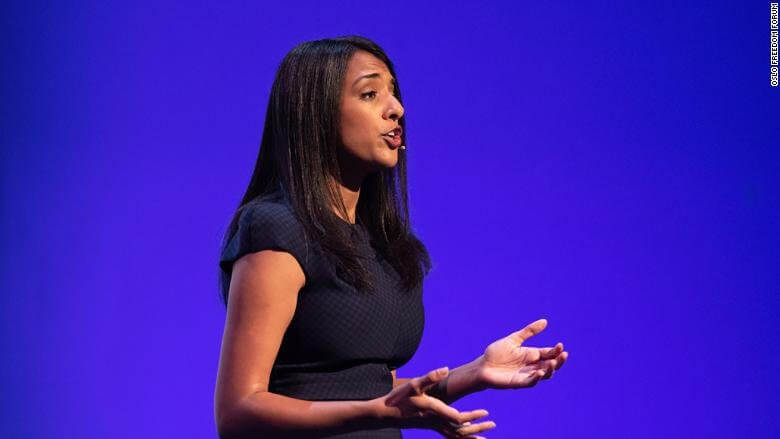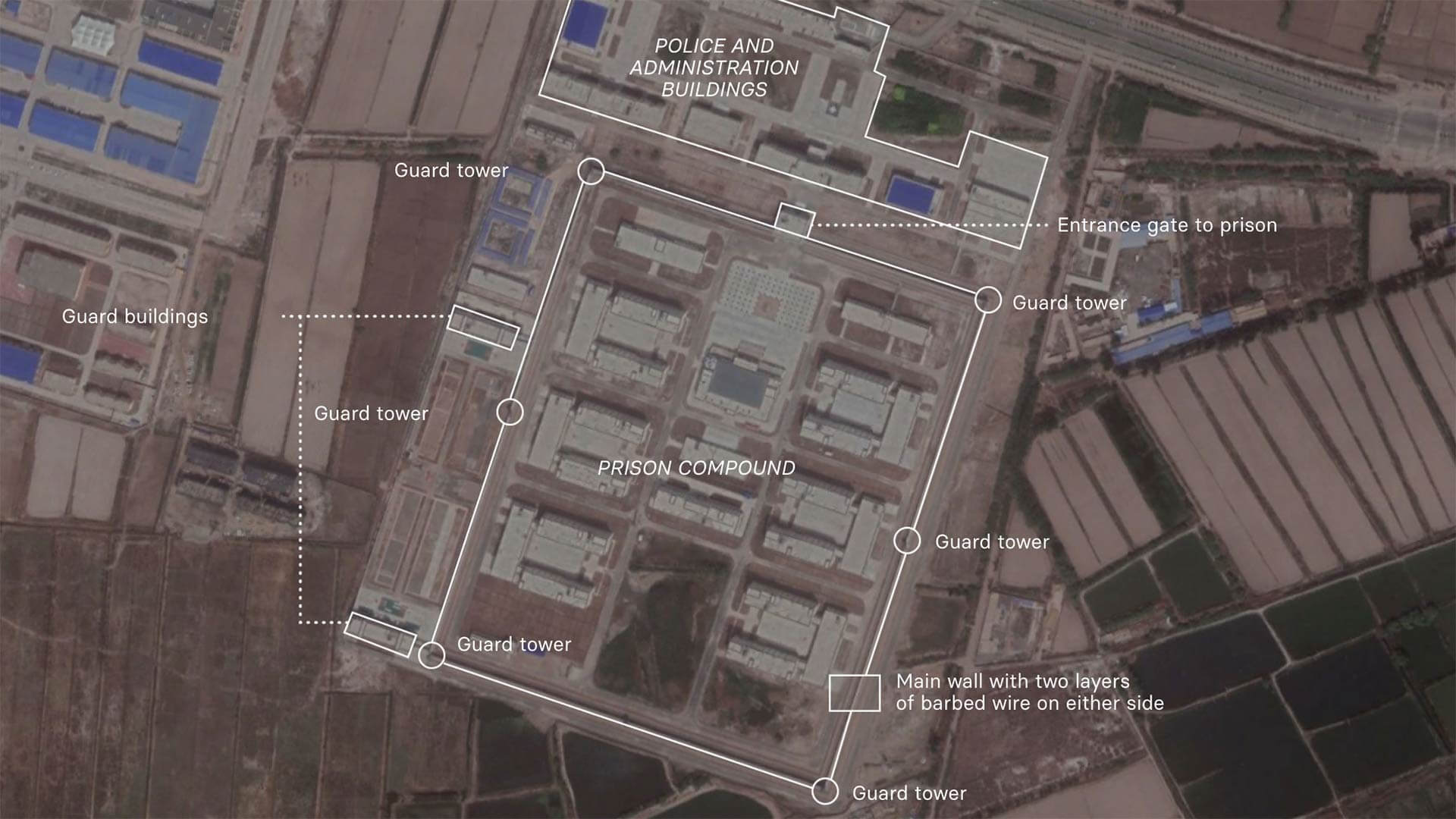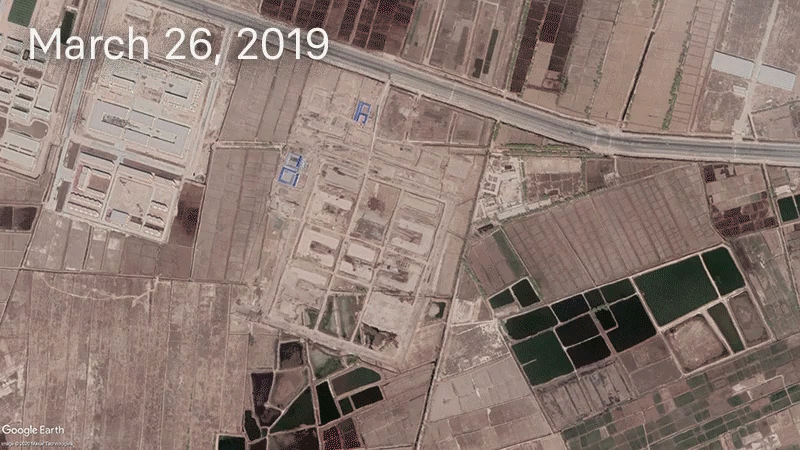- June 22, 2021
- By Annie Krakower
Not even having her visa renewal denied by the country on which she was reporting could stop Megha Rajagopalan ’08 from telling a critical human rights story.
The BuzzFeed News correspondent’s team spent months analyzing satellite imagery and conducting interviews outside China’s borders, identifying new infrastructure built in the country for the mass detention of hundreds of thousands of Muslims. The series of articles earned Rajagopalan, architect Alison Killing and programmer Christo Buschek a 2021 Pulitzer Prize, journalism’s highest honor, in the International Reporting category.
 “There were always problems with human rights in Xinjiang, but I had started to hear that things were getting a lot worse (in 2017) and that there was this kind of detention campaign under way,” Rajagopalan said. “The three of us working together enabled us to cover this issue that had typically been covered from inside China in the past in a new way.”
“There were always problems with human rights in Xinjiang, but I had started to hear that things were getting a lot worse (in 2017) and that there was this kind of detention campaign under way,” Rajagopalan said. “The three of us working together enabled us to cover this issue that had typically been covered from inside China in the past in a new way.”
During her time at the University of Maryland, Rajagopalan studied in the Philip Merrill College of Journalism, participated in the Honors College’s Honors Humanities program and worked for The Diamondback. Classes like Professor Deborah Nelson’s on investigative reporting, which examined war and peace with university experts Shibley Telhami and David Segal, left a lasting impact, and she went on to become a Fulbright scholar.
“Their teaching could not have fallen on more fertile ground than Megha,” Nelson said. “Her work on human rights has been groundbreaking.”
That experience, coupled with a semester studying abroad in Hong Kong, led Rajagopalan to pursue international reporting opportunities, starting in China in 2012 as a correspondent for Reuters. After joining BuzzFeed in 2016 and briefly working in Thailand, she returned to China the following year as the first reporter from the outlet permitted to work there regularly. Among other topics, she covered issues impacting Uighurs and other Muslim minorities in the Xinjiang region, including their placement in facilities that were then called “re-education centers.”
China’s Foreign Ministry refused to renew her visa in 2018, effectively forcing her out of the country. Now based in London, she teamed up with Killing and Buschek to continue reporting on the issue from afar. By analyzing thousands of satellite images, they compared censored Chinese maps to external ones, locating 268 newly built detention compounds. Some of the images were captured while the structures were under construction and without roofs, allowing the team to see security features, building layouts and other aspects of the living conditions inside.
 “I had reported using satellite images for stories before, but I had never done any kind of analysis or reporting to the scale of this,” Rajagopalan said. “For me, as more of a person with a traditional reporting background, it was very interesting for us to be able to compare that to people’s recollections of their time in camps.”
“I had reported using satellite images for stories before, but I had never done any kind of analysis or reporting to the scale of this,” Rajagopalan said. “For me, as more of a person with a traditional reporting background, it was very interesting for us to be able to compare that to people’s recollections of their time in camps.”
Rajagopalan was able to hear those memories through interviews done from Kazakhstan, where many ex-detainees reside. Their stories revealed the hunger, camera surveillance, forced haircuts and other means of torture that they were subjected to.
“Anyone who talks about this issue, even outside of China, is taking on a serious personal risk, and probably a risk to their loved ones,” Rajagopalan said. “It’s really blown me away how many people have said, ‘I understand what can happen, but if I don’t talk to you, maybe nobody will.’”
Despite the extensive innovative reporting, Rajagopalan didn’t expect to win a Pulitzer and didn’t even watch the livestreamed award announcements. After her editor-in-chief called and she shared the news with her family—her tweet about her father’s “understated Indian dad reaction” went viral, but both parents actually offered their heartfelt congratulations—the moment sunk in.
“Awards are amazing, but we don’t do the work for the awards. We do it to make an impact, to reveal something new,” Rajagopalan said. “But I will say, it is great to have the recognition for the newsroom. It underscores that this kind of series … takes an enormous amount of support.”
